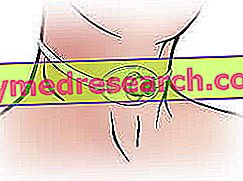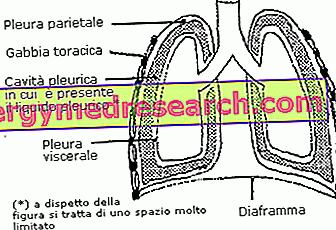Related articles: Mastoiditis
Definition
Mastoiditis is the inflammation of the mucosa that covers the bone cavities of the mastoid (posterior lateral portion of the temporal bone, which corresponds to the palpable bony protuberance behind the ear lobe).
The inflammatory process, acute or chronic, of the mastoid is the most frequent complication of middle ear infections, which extend to the mastoid through a small cavity called the mastoid cavern. Not surprisingly, in the newborn one speaks more correctly about antrite.
The responsible microorganism is generally the same that caused the otitis; pneumococcus is the most commonly involved agent.
Most common symptoms and signs *
- Neck pain
- Jaw pain
- Temperature
- Swelling around the ear
- Hearing loss
- Swollen lymph nodes
- Headache
- Otalgia
- Otorrhoea
- Snoring
Further indications
The symptoms of mastoiditis appear days or weeks after the onset of acute otitis media.
Mastoiditis causes intense, pulsating and persistent auricular pain, with hearing loss, fever and headache. Patients present with a purulent otorrhea and hyperemia, swelling and fluctuation may appear at the mastoid process; typically the auricle is laterally and inferiorly displaced.
Mastoid infection can be complicated by perforation of the tympanic membrane, osteitis, meningitis, brain abscess (temporal lobe), cavernous sinus thrombosis or facial paralysis. Infection can rarely erode the tip of the mastoid and spread in the neck (a picture known as the Bezold's abscess).
The diagnosis of mastoiditis is clinical. Computed tomography can be useful in confirming the diagnosis and assessing the extent of the infection. A sample of exudate from the middle ear, on the other hand, can be taken for the microbiological culture test and the antibiogram.
Once the diagnosis of mastoiditis is confirmed, intensive care is immediately instituted with intravenous antibiotics (such as ceftriaxone). In general, antibiotic treatment resolves this condition.
If the infectious process persists or antibiotic therapy is ineffective, it is necessary to proceed with surgery to remove the infected mastoid cells (mastoidectomy) and to restore drainage between the antrum mastoid and the tympanic cavity.



